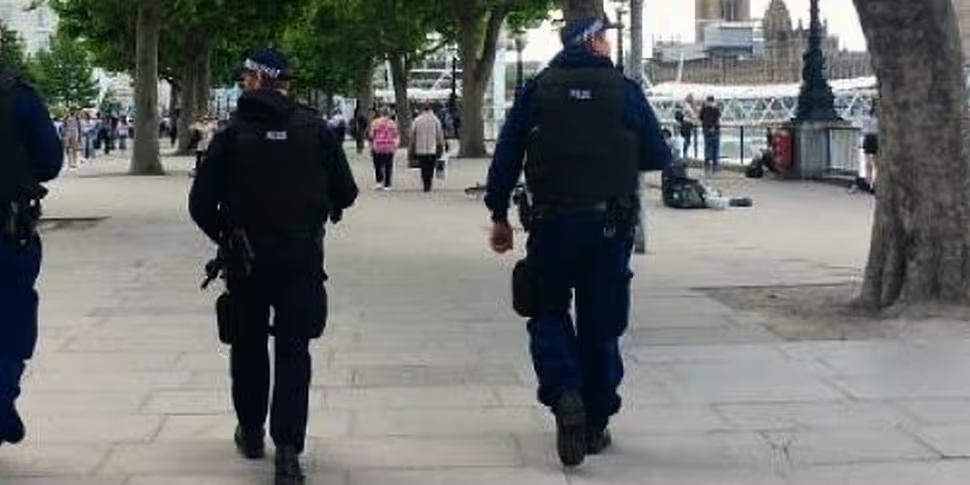Greater Manchester Police have confirmed one of the victims of a suicide bomb blast at a concert on Monday was a serving police officer.
Chief Constable Ian Hopkins also confirmed police have spoken to the immediate family of all 22 people killed.
They are also been supported by specially trained family liaison officers.
The suspect has been named by police as Salman Abedi and reports indicate he had returned to the UK from a trip to Libya just days before carrying out the attack.
In Tripoli, counter-terrorism police say they have arrested Abedi's younger brother, with officials claiming he 'knew of the plan'.
In the UK, a total of seven people have been arrested in connection with the investigation.
The latest arrest came in Warwickshire following police searches.
Searches carried out in Nuneaton pic.twitter.com/MYzehrc1Jj
— G M Police (@gmpolice) May 24, 2017
A woman was arrested on Wednesday evening following an armed raid on a block of flats in Blackley, north Manchester.
A man was arrested in Wigan on Wednesday afternoon, with officers assessing a package he was carrying.
Statement - arrest in Wigan this afternoon in connection with the investigation pic.twitter.com/ABskw2rhvE
— G M Police (@gmpolice) May 24, 2017
Three men were arrested earlier today, while a 23-year-old man was detained on Tuesday.
An address in Manchester city centre was searched after a controlled explosion was used to gain entry.
"It's very clear that this is a network that we are investigating," Constable Hopkins said.
The UK terror threat level has been raised from Severe to Critical - the highest possible level - after the Manchester Arena bombing.
France’s interior minister has warned that the man believed to be responsible for the suicide bombing had "proven" links to ISIS.
Islamic State has claimed it carried out the attack, which involved a homemade device packed with nuts and bolts.
In a statement on social media, the terror group said one of its soldiers had "placed bombs among the crowds."
Timeline of events - Manchester Arena pic.twitter.com/jqiF3lI8zw
— G M Police (@gmpolice) May 24, 2017
"Critical" terror threat
In a speech last night, British Prime Minister Theresa May said that she believed that another attack may be "imminent" following the suicide bombing at the Manchester Arena.
Mrs May announced the change after chairing a meeting of the UK government's emergency COBRA committee - saying military personnel will help armed police officers guard key sites.
“The police have asked for authorisation from the Secretary of State for Defence to deploy a number of armed military personnel in support of their armed officers,” she said.
Under ‘Operation Temperer,’ members of the armed forces could be deployed to public events, such as concerts and sports events - and also on the streets around Britain and at major shopping centres.
Suicide attack
British Home Secretary Amber Rudd has said the attacker was known “up to a point” to British intelligence services.
She said it “seems likely” that he was not acting alone adding that up to 3,800 soldiers will be deployed across the UK as part of Operation Temperer.
"Until we can be reassured that there is no continued activity around this operation, it is entirely safe around this operation, then it is right that we are at this heightened state of alert," she said.
She said she “absolutely” expects the raised threat level to be temporary.
"Appalling, sickening cowardice"
59 people are being treated in hospitals across Manchester, after the bomb attack targeting concertgoers at a gig by US pop singer and children’s TV star Arian Grande.
A number of children have been confirmed dead following the bombing.
Several victims have been identified as those killed at the concert.
Meanwhile, thousands attended a vigil in Manchester on Tuesday evening.
Ongoing investigation
Mrs May said the possibility "that there is a wider group of individuals linked to this attack" could not be ignored.
She said the Joint Terrorism Analysis Centre - the independent body which sets the threat level - had recommended it be raised after the bombing on Monday evening.
"It is now concluded on the basis of today's investigations that the threat level should be increased for the time being from severe to critical,” she said.
"This means that their assessment is not only that an attack remains highly likely but that a further attack may be imminent."
Assistant Commissioner Mark Rowley, head of national counter-terrorism policing, said the investigation was "making good progress."
"The public would expect the police to do everything possible to prevent further attacks and keep them safe," he said.
"We are flexing our resources to increase police presence at key sites, such as transport and other crowded places and we are reviewing key events over the coming weeks."









